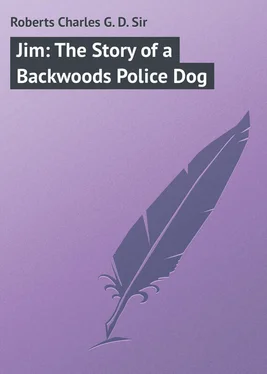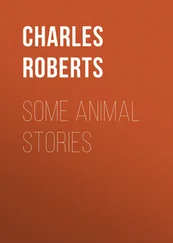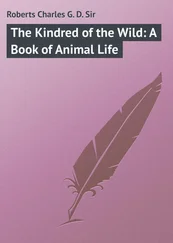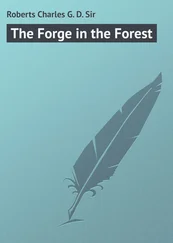Charles Roberts - Jim - The Story of a Backwoods Police Dog
Здесь есть возможность читать онлайн «Charles Roberts - Jim - The Story of a Backwoods Police Dog» — ознакомительный отрывок электронной книги совершенно бесплатно, а после прочтения отрывка купить полную версию. В некоторых случаях можно слушать аудио, скачать через торрент в формате fb2 и присутствует краткое содержание. Жанр: foreign_language, foreign_prose, на английском языке. Описание произведения, (предисловие) а так же отзывы посетителей доступны на портале библиотеки ЛибКат.
- Название:Jim: The Story of a Backwoods Police Dog
- Автор:
- Жанр:
- Год:неизвестен
- ISBN:нет данных
- Рейтинг книги:4 / 5. Голосов: 1
-
Избранное:Добавить в избранное
- Отзывы:
-
Ваша оценка:
- 80
- 1
- 2
- 3
- 4
- 5
Jim: The Story of a Backwoods Police Dog: краткое содержание, описание и аннотация
Предлагаем к чтению аннотацию, описание, краткое содержание или предисловие (зависит от того, что написал сам автор книги «Jim: The Story of a Backwoods Police Dog»). Если вы не нашли необходимую информацию о книге — напишите в комментариях, мы постараемся отыскать её.
Jim: The Story of a Backwoods Police Dog — читать онлайн ознакомительный отрывок
Ниже представлен текст книги, разбитый по страницам. Система сохранения места последней прочитанной страницы, позволяет с удобством читать онлайн бесплатно книгу «Jim: The Story of a Backwoods Police Dog», без необходимости каждый раз заново искать на чём Вы остановились. Поставьте закладку, и сможете в любой момент перейти на страницу, на которой закончили чтение.
Интервал:
Закладка:
At last the little fellow began to realize that these were not the actions of a foe. Timidly he lowered his hands from his face, and looked around. Why, there was the bear, on the other side of the water, tremendous and terrible, but just where he had been this ever so long. This creature that was making such a fuss over him was plainly a dog – a kind, good dog, who was fond of little boys.
With a sigh of inexpressible relief his terror slipped from him. He flung his arms about Jim’s shaggy neck and buried his face in the wet fur. And Jim, his heart swelling with pride, stood up and barked furiously across at the bear.
Tug Blackstock, standing in the stern of his canoe, plied his pole with renewed effort. Reaching the spit he strode forward, snatched the child up in his arms, and passed his great hand tenderly through that wonderful shock of whitey-gold silken curls. His eyes were moist, but his voice was hearty and gay, as if this meeting were the most ordinary thing in the world.
“Hullo, Woolly Billy!” he cried. “What are you doin’ here?”
“Daddy left me here,” answered the child, his lip beginning to quiver. “Where’s he gone to?”
“Oh,” replied Tug Blackstock hurriedly, “yer dad was called away rather sudden, an’ he sent me an’ Jim, here, to look after you till he gits back. An’ we’ll do it, too, Woolly Billy; don’t you fret.”
“My name’s George Harold Manners Watson,” explained the child politely.
“But we’ll just call you Woolly Billy for short,” said Tug Blackstock.
II. THE BOOK AGENT AND THE BUCKSKIN BELT
A big-framed, jaunty man with black side-whiskers, a long black frock coat, and a square, flat case of shiny black leather strapped upon his back, stepped into the Corner Store at Brine’s Rip Mills.
He said: “Hullo, boys! Hot day!” in a big voice that was intentionally hearty, ran his bulging eyes appraisingly over every one present, then took off his wide-brimmed felt hat and mopped his glistening forehead with a big red and white handkerchief. Receiving a more or less hospitable chorus of grunts and “hullos” in response, he seated himself on a keg of nails, removed the leather case from his back, and asked for ginger beer, which he drank noisily from the bottle.
“Name of Byles,” said he at length, introducing himself with a sweeping nod. “Hot tramp in from Cribb’s Ridge. Thirsty, you bet. Never drink nothing stronger’n ginger pop or soft cider. Have a round o’ pop on me, boys. A1 pop this o’ yours, mister. A dozen more bottles, please, for these gentlemen.”
He looked around the circle with an air at once assured and persuasive. And the taciturn woodsmen, not wholly at ease under such sudden cordiality from a stranger, but too polite to rebuff him, muttered “Thank ye, kindly,” or “Here’s how,” as they threw back their heads and poured the weak stuff down their gaunt and hairy throats.
It was a slack time at Brine’s Rip, the mills having shut down that morning because the river was so low that there were no more logs running. The shrieking saws being silent for a little, there was nothing for the mill hands to do but loaf and smoke. The hot air was heavily scented with the smell of fresh sawdust mixed with the strong honey-perfume of the flowering buckwheat fields beyond the village. The buzzing of flies in the windows of the store was like a fine arabesque of sound against the ceaseless, muffled thunder of the rapids.
The dozen men gathered here at Zeb Smith’s store – which was, in effect, the village club – found it hard to rouse themselves to a conversational effort in any way worthy the advances of the confident stranger. They all smoked a little harder than usual, and looked on with courteous but noncommittal interest while he proceeded to unstrap his shiny black leather case.
In his stiff and sombre garb, so unsuited to the backwoods trails, the stranger had much the look of one of those itinerant preachers who sometimes busy themselves with the cure of souls in the remoter backwoods settlements. But his eye and his address were rather those of a shrewd and pushing commercial traveller.
Tug Blackstock, the Deputy Sheriff of Nipsiwaska County, felt a vague antagonism toward him, chiefly on the ground that his speech and bearing did not seem to consort with his habiliments. He rather liked a man to look what he was or be what he looked, and he did not like black side whiskers and long hair. This antagonism, however, he felt to be unreasonable. The man had evidently had a long and tiring tramp, and was entitled to a somewhat friendlier reception than he was getting.
Swinging his long legs against the counter, on which he sat between a pile of printed calicoes and a box of bright pink fancy soap, Tug Blackstock reached behind him and possessed himself of a box of long, black cigars. Having selected one critically for himself, he proffered the box to the stranger.
“Have a weed?” said he cordially. “They ain’t half bad.”
But the stranger waved the box aside with an air at once grand and gracious.
“I never touch the weed, thank you kindly just the same,” said he. “But I’ve nothing agin it. It goes agin my system, that’s all. If it’s all the same to you, I’ll take a bite o’ cheese an’ a cracker ’stead o’ the cigar.”
“Sartain,” agreed Blackstock, jumping down to fetch the edibles from behind the counter. Like most of the regular customers, he knew the store and its contents almost as well as Zeb Smith himself.
During the last few minutes an immense, rough-haired black dog had been sniffing the stranger over with suspicious minuteness. The stranger at first paid no attention whatever, though it was an ordeal that many might have shrunk from. At last, seeming to notice the animal for the first time, he recognized his presence by indifferently laying his hand upon his neck. Instead of instantly drawing off with a resentful growl, after his manner with strangers, the dog acknowledged the casual caress by a slight wag of the tail, and then, after a few moments, turned away amicably and lay down.
“If Jim finds him all right,” thought Blackstock to himself, “ther’ can’t be much wrong with him, though I can’t say I take to him myself.” And he weighed off a much bigger piece of cheese than he had at first intended to offer, marking down his indebtedness on a slate which served the proprietor as a sort of day-book. The stranger fell to devouring it with an eagerness which showed that his lunch must have been of the lightest.
“Ye was sayin’ as how ye’d jest come up from Cribb’s Ridge?” put in a long-legged, heavy-shouldered man who was sprawling on a cracker box behind the door. He had short sandy hair, rapidly thinning, eyes of a cold grey, set rather close together, and a face that suggested a cross between a fox and a fish-hawk. He was somewhat conspicuous among his fellows by the trimness of his dress, his shirt being of dark blue flannel with a rolled-up collar and a scarlet knotted kerchief, while the rest of the mill hands wore collarless shirts of grey homespun, with no thought of neckerchiefs.
His trousers were of brown corduroy, and were held up by a broad belt of white dressed buckskin, elaborately decorated with Navajo designs in black and red. He stuck to this adornment tenaciously as a sort of inoffensive proclamation of the fact that he was not an ordinary backwoods mill hand, but a wanderer, one who had travelled far, and tried his wits at many ventures in the wilder West.
“Right you are,” assented the stranger, brushing some white cracker crumbs out of his black whiskers.
“I was jest a-wonderin’,” went on Hawker, giving a hitch to the elaborate belt and leaning forward a little to spit out through the doorway, “if ye’ve seed anything o’ Jake Sanderson on the road.”
Читать дальшеИнтервал:
Закладка:
Похожие книги на «Jim: The Story of a Backwoods Police Dog»
Представляем Вашему вниманию похожие книги на «Jim: The Story of a Backwoods Police Dog» списком для выбора. Мы отобрали схожую по названию и смыслу литературу в надежде предоставить читателям больше вариантов отыскать новые, интересные, ещё непрочитанные произведения.
Обсуждение, отзывы о книге «Jim: The Story of a Backwoods Police Dog» и просто собственные мнения читателей. Оставьте ваши комментарии, напишите, что Вы думаете о произведении, его смысле или главных героях. Укажите что конкретно понравилось, а что нет, и почему Вы так считаете.












